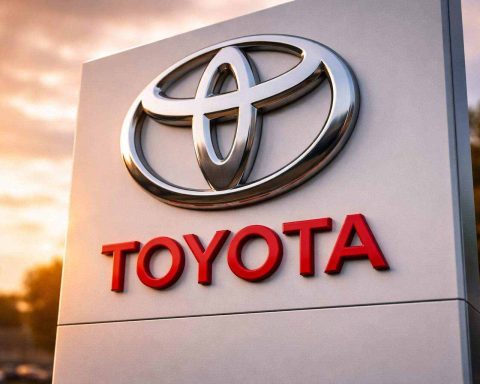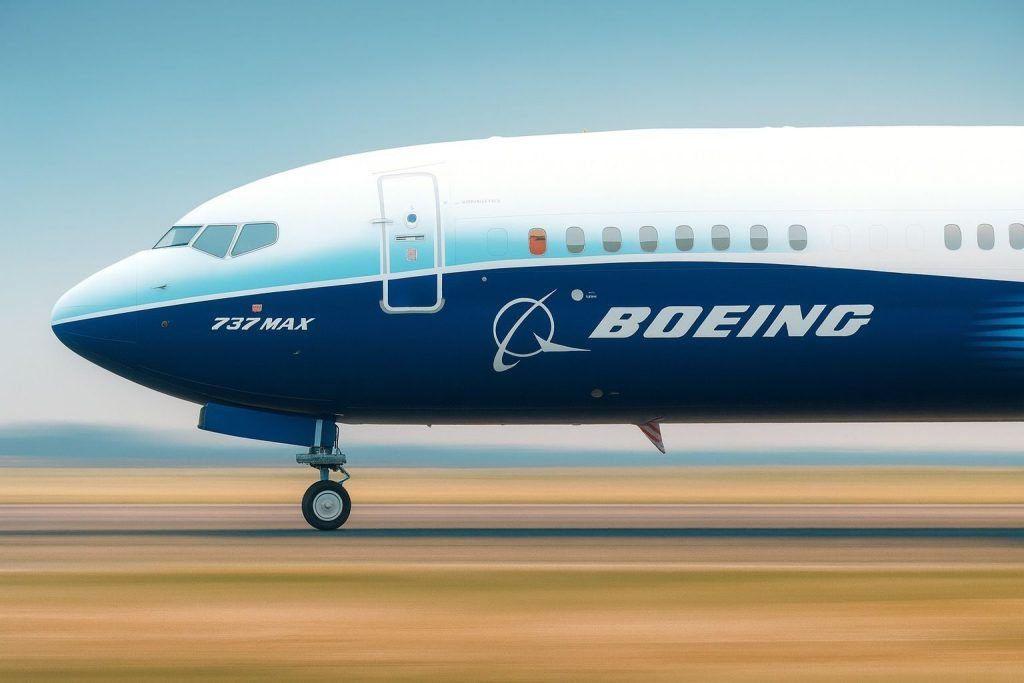- Fly PLAY hf. (PLAY Airlines) announced on Sept 29, 2025 that it is immediately ceasing all operations 1 .
- All flights were cancelled with no advance warning, leaving “thousands of passengers” scrambling to rebook alternative flights globenewswire.com 2 .
- The airline cited prolonged financial woes, weak ticket sales, negative media coverage, and internal disputes among staff as reasons for the shutdown globenewswire.com 3 .
- About 400 employees will lose their jobs globenewswire.com. (Some reports put the total at ~500 when including contractors and partners 4 .)
- PLAY was founded in 2019 by former WOW Air executives, aiming to revive Iceland’s ultra-low-cost model after WOW’s 2019 collapse 5 .
- Industry analysts say PLAY’s failure mirrors WOW Air’s fate and highlights how hard it is for small carriers to sustain transatlantic low-fare routes independent.co.uk 6 .
- The exit reduces competition on Iceland’s routes to Europe and the U.S., likely benefiting Icelandair. Analyst Sean Moulton notes “the gap will allow Icelandair to expand.” 7
- Other airlines (e.g. Icelandair, easyJet) are expected to offer cheap “rescue fares” to help stricken PLAY customers reach home independent.co.uk 8 .
Sudden Collapse Shocks Icelandic Aviation
Iceland’s newest budget airline, PLAY, stunned travelers and industry observers on Sept. 29 when its board abruptly terminated all operations globenewswire.com. In an official press release (and a notice on its website), Fly PLAY hf. announced that “all of the company’s flights have been canceled” globenewswire.com. The company said it would work with authorities and staff to wind down the airline, but gave no room for continued service. In practical terms, every PLAY flight scheduled from that point was cancelled. Stranded passengers at Keflavik Airport and elsewhere were told to seek alternate routes. The airline’s message to customers apologized for the disruption – “We are deeply sorry for the disruption this causes and thank you for your understanding,” the company stated airdatanews.com – while advising travelers to contact their credit card companies or travel agencies for refunds flyplay.com 9 .
The shutdown was a dramatic turnaround for a carrier that only last year was pitching a “new business model” to investors. PLAY executives had said in August 2025 that unit revenue was at a record high on certain routes, and that profitability could emerge in 2026. However, those hopes quickly unraveled. Play’s board explicitly blamed its prolonged losses and “poor ticket sales” globenewswire.com reuters.com. According to Reuters, the company halted flights citing the impact of “weak financial performance and poor ticket sales” reuters.com. Indeed, financial filings showed massive losses: one report notes PLAY lost about $66 million in 2024 (roughly £49 million) independent.co.uk. In Q2 2025 alone the airline lost $16 million, a significant deterioration year-over-year 10 .
PLAY’s strategy had shifted repeatedly under financial pressure. In late 2024 it pivoted to focus on Europe and the Canary Islands while cutting most U.S. routes airdatanews.com. Some operations were transferred to a Maltese subsidiary with offices in Malta and Lithuania, an effort to cut costs. But none of these moves proved sufficient. Company spokespeople admitted that their revised plan “cannot deliver results sufficient to overcome the company’s deep-rooted challenges”, and that those changes in hindsight “should have been implemented earlier” globenewswire.com. In short, PLAY ran out of money.
Why PLAY Failed
PLAY’s abrupt demise reflects a combination of factors. The official press release listed multiple reasons: the airline’s performance had “long been weaker than expected,” ticket sales had been poor “following negative media coverage,”and internal disagreements among staff over strategy had exacerbated the crisis globenewswire.com. Icelandic media reported that the board lamented “prodigious financial losses throughout its brief existence” independent.co.uk. A key turning point was the airline’s attempt to overhaul its model in 2024. That plan initially “inspired significant optimism,”but ultimately could not stem the losses icelandmonitor.mbl.is globenewswire.com. By September, PLAY conceded it had reached the “most difficult” decision after all options were exhausted 11 .
Observers note that the core of PLAY’s problem was its business model. The airline had set out to replicate the WOW Air approach: linking Europe to North America via Reykjavik at ultra-low fares. But this was a tough challenge. Aviation analyst Sean Moulton explains that PLAY essentially “tried to replicate WOW Air, connecting secondary cities [in] Europe to the US,” yet that market “is limited and low yield.” He adds that focusing on leisure point-to-point routes offered only partial relief, since “the Icelandic population is small and any airline would struggle with this alone.” independent.co.uk. In practical terms, PLAY never had enough local market or capital to cover the heavy fixed costs of running transatlantic jets.
The international context made matters worse. PLAY executives themselves cited a “tough market environment”, with intense competition on routes and unpredictable costs aviation.direct. The airline pointed to factors like a weak Icelandic krona (which drives up fuel and lease costs) and disappointing demand for new North Atlantic service. Independent analysis noted that, even before the shutdown, PLAY’s losses were unsustainable — roughly £31 lost per passenger in 2024 independent.co.uk. A final warning had come in August 2025, when PLAY forecast only eventual profit (in 2026) but ended up shutting down just weeks later.
PLAY’s fate was not unique. The North Atlantic low-cost experiment has a poor track record. Analyst commentary highlights that several recent ventures have failed or been retrenched. For example, Norway’s Norwegian Air Shuttle gave up on long-haul ultra-low-cost flying after bleeding money, and WOW Air (PLAY’s predecessor) collapsed in 2019 under similar pressures aviation.direct. Aviation.Direct notes that “the transatlantic business has been a challenge for many low-cost airlines… Norwegian Air Shuttle… and the aforementioned WOW Air… demonstrate how treacherous this market can be.” aviation.direct. PLAY joined that list on Sept. 29, 2025, becoming the latest in a series of budget carriers to implode in recent years (following Primera Air in 2018 and WOW Air in 2019) 4 .
Impact on Passengers, Employees and Market
The human toll was immediate. PLAY’s announcement left thousands of customers stranded abroad or unable to complete their journeys. For example, one media report noted that PLAY’s final Reykjavík–London flight landed as scheduled Monday morning, but its return leg was canceled — stranding would-be travelers in England independent.co.uk. The airline directed travelers to rebook with others. Industry experts advise stranded passengers to be on the lookout for “rescue fares” — specially-priced tickets other airlines sell when a carrier folds. In fact, travel columnist Simon Calder notes that carriers like easyJet and Icelandair typically offer one-way seats (around £50 from the UK, ~£100 from the U.S.) to help these passengers independent.co.uk. PLAY’s own site told customers to seek alternate flights or credit-card refunds flyplay.com independent.co.uk. Under EU law, affected passengers are entitled to refunds or re-routing, but the burden now falls largely on customers and their insurers.
PLAY’s 400 (or so) employees are another obvious loss. All ground staff, cabin crew, and pilots will be laid off as the airline winds down globenewswire.com. That will impact Iceland’s aviation workforce — especially when combined with layoffs at other airlines this year. The collapsed airline’s partners also lose business. Tourism agencies, slot coordinators, maintenance providers, and Reykjavik’s Keflavik Airport anticipated significant seasonal traffic from PLAY. Those partners now face financial shortfalls, as noted in the airline’s statement 11 .
On a market level, PLAY’s exit reshapes the landscape. Its immediate effect is to reduce competition on routes between Iceland and key European and U.S. cities. Icelandair, the legacy carrier, now faces little challengers for budget-conscious travelers. In fact, Sean Moulton predicts PLAY’s disappearance “will allow Icelandair to expand” independent.co.uk. Icelandair and others may indeed boost capacity or launch new routes (e.g. to fill the void in North Atlantic service). Conversely, consumers now have fewer low-fare options. That could mean higher prices or less choice on certain winter routes.
Comparison to Past Airline Failures
PLAY’s collapse invites comparison to earlier Icelandic carriers. Both WOW Air and Primera Air went bankrupt after attempting similar business models. PLAY’s founders were well aware of WOW’s 2019 demise; many key executives came from WOW. Yet the lesson – that a tiny home market cannot easily support high-frequency transatlantic LCC service – proved hard to escape. Travel experts comment that PLAY’s failure was “sad but predictable” given its debt and nascent market onemileatatime.com. In fact, Simon Calder observes the chain of events: PLAY folded about five years after launch, following WOW Air’s failure in 2019 (and Primera Air’s in 2018) independent.co.uk. He notes that Icelandair, unlike those defunct startups, remains profitable. In other words, legacy carriers with diversified networks can weather ups and downs better than bootstrap budget airlines.
This pattern isn’t unique to Iceland. The broader airline industry has seen several low-cost carriers struggle or restructure in 2025. For example, U.S. Spirit Airlines narrowly avoided bankruptcy by rebranding as a higher-service carrier, and small airlines like Silver Airways have ceased operations this year. Analysts say factors like slim profit margins, pandemic debt, and intense competition have exposed “recurring bankruptcy risks among low-cost carriers” in 2025 thepaypers.com. In sum, PLAY’s demise fits a larger narrative: airlines with thin finances and ambitious expansion plans (often after pandemic losses) are failing unless shored up by strong cash or government aid.
Outlook and What’s Next
In the immediate aftermath, attention turns to recovery efforts. Thousands of travelers will arrange alternate tickets (some travel insurance policies cover extra accommodation). Both Icelandic authorities and airlines will coordinate to minimize chaos. Historically, carriers often help with low-cost seats for stranded customers – a practice called “rescue fares.” Indeed, Simon Calder’s analysis suggests Icelandair and others will quickly advertise these fares to maintain goodwill 9 .
Longer-term, Reykjavik’s aviation authority and tourism promoters will need to adapt. Iceland had marketed itself as an affordable connecting hub (especially on Icelandair’s model with stopovers). Now that PLAY is gone, that hub strategy is weaker. However, Iceland’s overall tourism has been rising, and as of 2024 the sector recovered fully from the pandemic thepaypers.com. So while there will be a lull in low-cost connections, tourist demand remains. Icelandair and others may fill some routes, and perhaps new startups will emerge with different models. But any new entrant will likely proceed cautiously, mindful of PLAY’s cautionary tale.
Conclusion
The sudden shutdown of PLAY Airlines on Sept. 29, 2025, marks a turbulent chapter for Icelandic aviation. What began in 2021 as an optimistic low-cost venture ended in immediate liquidation. The episode shows how razor-thin margins and strategic missteps can bring down even well-funded startups. In the words of PLAY’s board, “everything has been tried,”yet unchanging market realities proved insurmountable globenewswire.com. For travelers and staff, the collapse is undoubtedly painful. For Iceland’s airline industry, it means a return to monopoly-like conditions under Icelandair – at least until market forces draw new players. Observers will watch closely for lessons: among them, the importance of adequate capital, realistic route planning, and the difficulty of escaping economics even on a small volcanic island.
Sources: Play’s official notice globenewswire.com; Reuters report reuters.com; Play press release globenewswire.com globenewswire.com; Iceland Monitor icelandmonitor.mbl.is icelandmonitor.mbl.is; Air Data News airdatanews.com airdatanews.com; Simon Calder/Independent independent.co.uk independent.co.uk independent.co.uk; Aviation.Direct analysis aviation.direct aviation.direct; One Mile at a Time onemileatatime.com; additional industry commentary. (All information current as of Sept. 29, 2025.)






